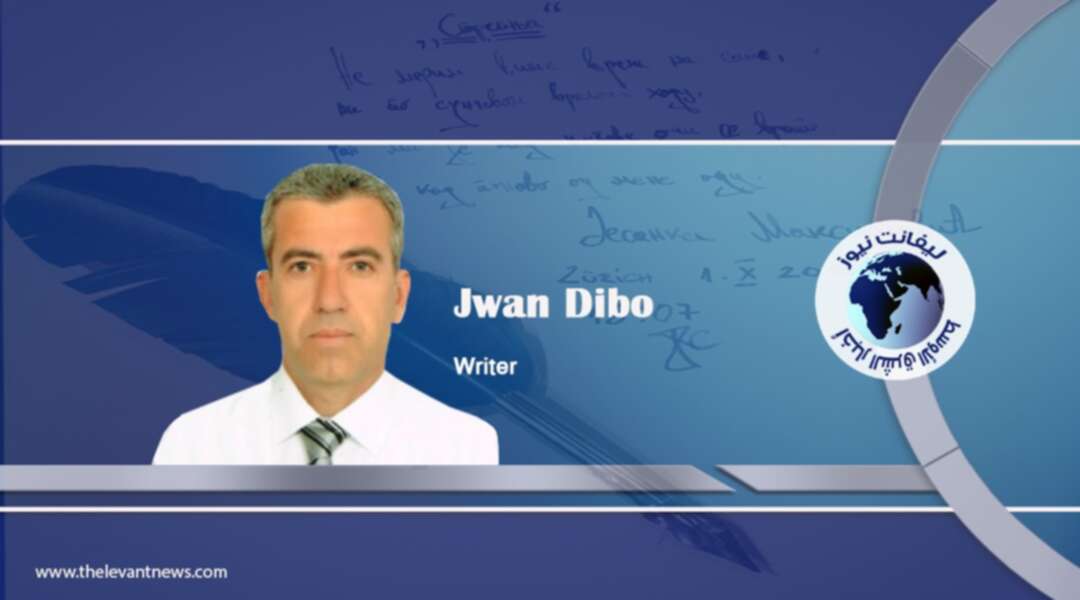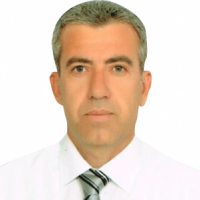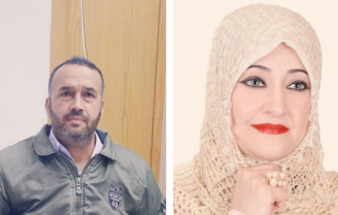-
The Syrian Opposition Is Worse Than the Syrian Regime

Ten years have passed since the outbreak of the Syrian civil war in 2011 and there are still only two options in Syria, bad and worse. The Syrian regime represents the bad option and the Syrian opposition represents the worse option. Or at best, Assad regime and the Syrian opposition are two sides of the same coin. Syrian Regime
History and the present are replete with examples that demonstrate that most oppositions in the world are almost a replica of ruling systems or ruling parties. For sure, this golden rule has exceptions, yet, Syria is not one of them. On the contrary, the only exception in this context is that the Syrian opposition has surpassed the Syrian regime in adopting degenerate political discourse. Moreover, despicable policies on the ground in the areas it controls with the help of the Turkish occupier.
Most prominent figures in the Syrian opposition are either former supporters of Assad regime or belong to political Islam, more precisely, to the Muslim Brotherhood in Syria. In other words, the Syrian regime and its opponents have the same values and culture. Therefore, throughout the Syrian crisis, the opposition has adopted similar policies and agendas to Assad regime, if not worse.
Since the first bullet was fired in the Syrian internal strife in 2011, the Syrian armed opposition has deliberately pushed populated areas into the circle of armed conflict with the merciless Assad regime. The armed factions, that intentionally implicated residential areas in the bloody conflict, were aware of the brutal response by Assad regime. However, they did not care about the lives and livelihood of civilians and did not respect international conventions in this regard. Their goal was to bring in Western military intervention to topple Assad regime and to seize power.
After the Syrian political and armed opposition became certain that the West would not intervene, then they invited Turkey to invade and occupy many areas in north and north east Syria. They called the areas occupied by Turkey as liberated areas! Like Assad regime, pro-Turkish factions liquidated opponents. They carried out demographic changes in the occupied city of Afrin when they expelled its original inhabitants of Kurds and settled Arabs and Turkmen instead.
They changed the names of the cities and towns they occupied, especially the Kurdish one, and then applied the policies of Arabization and Turkification. They raised the Turkish flag and pictures of their Sultan, Erdogan, in the occupied territories. Turkish language has become the official language in schools. Turkish lira is the main currency in commercial and financial dealings in all occupied territories. Turkish government appointed Turkish governors to these areas. So, practically, all these occupied areas have become a part of Turkey.
The Syrian opposition, especially “National Coalition for Syrian Revolutionary and Opposition Forces” supported by Ankara, adopted an extremist sectarian and nationalist rhetoric. They have always insisted on imparting the Arab and Islamic character to Syria according to their project, which posed a flagrant threat to the other non-Arab components.
Hundreds of extremist armed factions affiliated with the Syrian opposition have emerged, including the Islamic State and Al-Nusra Front (al-Qaeda branch). Hundreds of battles were fought by these radical groups against each other for influence. Thousands of its members have turned into mercenaries on demand under the supervision of Turkish intelligence and to serve Turkey’s agendas and interests. Then they were sent to Libya, Azerbaijan, Venezuela, and other places.
The Syrian opposition is divided into many platforms. Istanbul platform, Moscow platform, Cairo platform, and the ‘patriotic’ opposition platform at home according to the classification of Assad regime. Each platform represents the agendas of its sponsoring state.
The above is some of what was provided by the Syrian political and armed opposition, especially those affiliated with Turkey. Unfortunately, after ten years of crisis, hundreds of thousands of deaths and millions of people displaced, Syrians have only two options. The bad choice represented by Assad regime and the worst choice represented by the Islamic opposition that implements Turkish and Qatari agendas in Syria. Syrian Regime
Jwan Dibo levant

You May Also Like
Popular Posts
Caricature
BENEFIT AGM approves 10%...
- March 27, 2025
BENEFIT, the Kingdom’s innovator and leading company in Fintech and electronic financial transactions service, held its Annual General Meeting (AGM) at the company’s headquarters in the Seef District.
During the meeting, shareholders approved all items listed on the agenda, including the ratification of the minutes of the previous AGM held on 26 March 2024. The session reviewed and approved the Board’s Annual Report on the company’s activities and financial performance for the fiscal year ended 31 December 2024, and the shareholders expressed their satisfaction with the company’s operational and financial results during the reporting period.
The meeting also reviewed the Independent External Auditor’s Report on the company’s consolidated financial statements for the year ended 31 December 2024. Subsequently, the shareholders approved the audited financial statements for the fiscal year. Based on the Board’s recommendation, the shareholders approved the distribution of a cash dividend equivalent to 10% of the paid-up share capital.
Furthermore, the shareholders endorsed the allocation of a total amount of BD 172,500 as remuneration to the members of the Board for the year ended 31 December 2024, subject to prior clearance by related authorities.
The extension of the current composition of the Board was approved, which includes ten members and one CBB observer, for a further six-month term, expiring in September 2025, pending no objection from the CBB.
The meeting reviewed and approved the Corporate Governance Report for 2024, which affirmed the company’s full compliance with the corporate governance directives issued by the CBB and other applicable regulatory frameworks. The AGM absolved the Board Members of liability for any of their actions during the year ending on 31st December 2024, in accordance with the Commercial Companies Law.
In alignment with regulatory requirements, the session approved the reappointment of Ernst & Young (EY) as the company’s External Auditors for the fiscal year 2025, covering both the parent company and its subsidiaries—Sinnad and Bahrain FinTech Bay. The Board was authorised to determine the external auditors’ professional fees, subject to approval from the CBB, and the meeting concluded with a discussion of any additional issues as per Article (207) of the Commercial Companies Law.
Speaking on the company’s performance, Mr. Mohamed Al Bastaki, Chairman BENEFIT , stated: “In terms of the financial results for 2024, I am pleased to say that the year gone by has also been proved to be a success in delivering tangible results. Growth rate for 2024 was 19 per cent. Revenue for the year was BD 17 M (US$ 45.3 Million) and net profit was 2 Million ($ 5.3 Million).
Mr. Al Bastaki also announced that the Board had formally adopted a new three-year strategic roadmap to commence in 2025. The strategy encompasses a phased international expansion, optimisation of internal operations, enhanced revenue diversification, long-term sustainability initiatives, and the advancement of innovation and digital transformation initiatives across all service lines.
“I extend my sincere appreciation to the CBB for its continued support of BENEFIT and its pivotal role in fostering a stable and progressive regulatory environment for the Kingdom’s banking and financial sector—an environment that has significantly reinforced Bahrain’s standing as a leading financial hub in the region,” said Mr. Al Bastaki. “I would also like to thank our partner banks and valued customers for their trust, and our shareholders for their ongoing encouragement. The achievements of 2024 set a strong precedent, and I am confident they will serve as a foundation for yet another successful and impactful year ahead.”
Chief Executive of BENEFIT; Mr. Abdulwahed AlJanahi commented, “The year 2024 represented another pivotal chapter in BENEFIT ’s evolution. We achieved substantial progress in advancing our digital strategy across multiple sectors, while reinforcing our long-term commitment to the development of Bahrain’s financial services and payments landscape. Throughout the year, we remained firmly aligned with our objective of delivering measurable value to our shareholders, strategic partners, and customers. At the same time, we continued to play an active role in enabling Bahrain’s digital economy by introducing innovative solutions and service enhancements that directly address market needs and future opportunities.”
Mr. AlJanahi affirmed that BENEFIT has successfully developed a robust and well-integrated payment network that connects individuals and businesses across Bahrain, accelerating the adoption of emerging technologies in the banking and financial services sector and reinforcing Bahrain’s position as a growing fintech hub, and added, “Our achievements of the past year reflect a long-term vision to establish a resilient electronic payment infrastructure that supports the Kingdom’s digital economy. Key developments in 2024 included the implementation of central authentication for open banking via BENEFIT Pay”
Mr. AlJanahi concluded by thanking the Board for its strategic direction, the company’s staff for their continued dedication, and the Central Bank of Bahrain, member banks, and shareholders for their valuable partnership and confidence in the company’s long-term vision.
opinion
Report
ads
Newsletter
Subscribe to our mailing list to get the new updates!






















